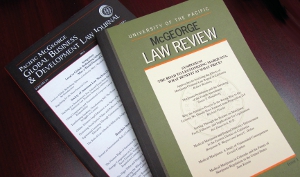The contribution of the UN Convention on the law of the non-navigational uses of international watercourses
Document Type
Article
Publication Date
2001
Abstract
The 1997 UN Convention on international watercourses helps to clarify the basic standards governing the non-navigational uses of internationally shared fresh water resources. Generally the Convention does not seek to push the law beyond its present contours, but reflects a general consensus regarding the principles that are universally applicable in the field. It provides a starting point for the negotiation of agreements relating to specific watercourses and, in the absence of an agreement, sets basic parameters governing the conduct of riparian states relative to those watercourses. Even where there is an applicable agreement, the Convention may play an important role in the interpretation of that agreement, as in the Gabcíkovo-Nagymaros case. For these reasons, the success of the Convention does not depend on whether it enters into force. Its influence is more likely to derive from its status as the most authoritative statement of general principles and rules governing the non-navigational uses of international watercourses. © 2001 Inderscience Enterprises Ltd.
Publication Title
International Journal of Global Environmental Issues
ISSN
1466-6650
Volume
1
Issue
3-4
DOI
10.1504/ijgenvi.2001.000980
First Page
250
Last Page
263
Recommended Citation
Stephen C. McCaffrey,
The contribution of the UN Convention on the law of the non-navigational uses of international watercourses,
1
International Journal of Global Environmental Issues
250
(2001).
Available at:
https://scholarlycommons.pacific.edu/facultyarticles/374



